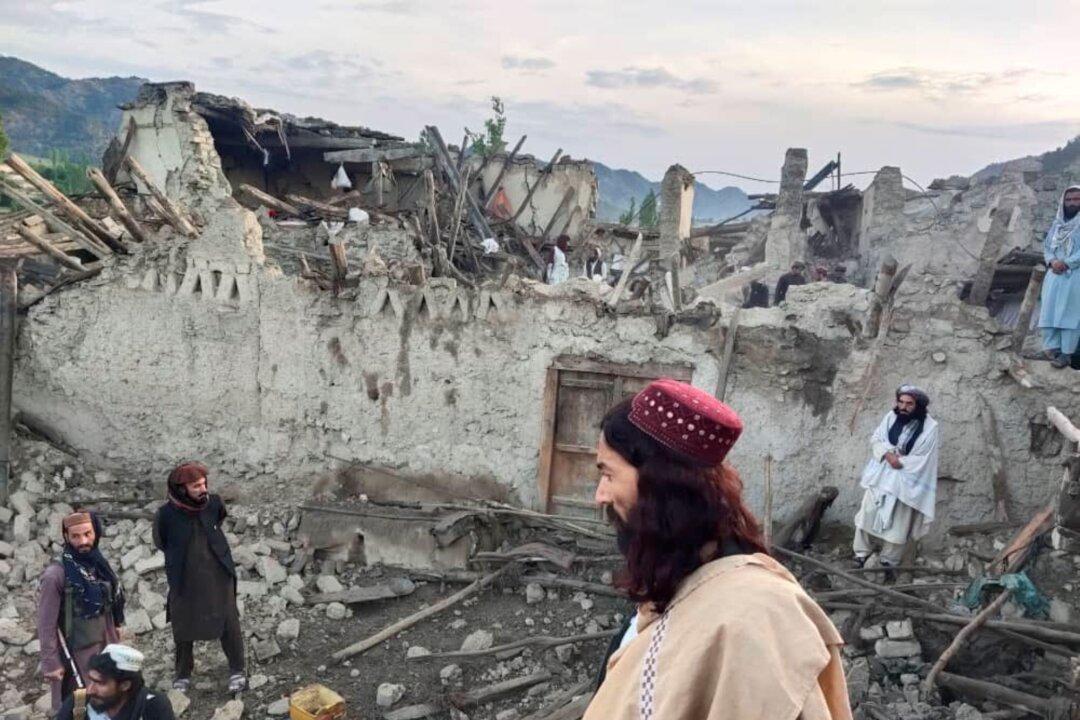KABUL, Afghanistan—A powerful earthquake struck a rural, mountainous region of eastern Afghanistan early Wednesday, killing 1,000 people and injuring 1,500 more in one of the deadliest temblors in decades, the state-run news agency reported. Officials warned that the already grim toll may still rise.
Information remained scarce on the magnitude 6.1 temblor that damaged buildings in Khost and Paktika Provinces. Rescue efforts are likely to be complicated since many international aid agencies left Afghanistan after the Taliban takeover of the country last year and the chaotic withdrawal of the U.S. military from the longest war in its history.





